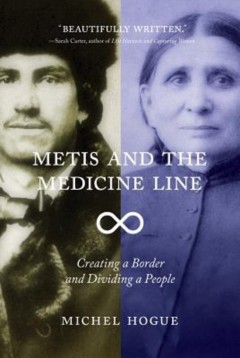Michel Hogue’s book wins the Stubbendieck Great Plains Distinguished Book Prize

This year’s winner of the Stubbendieck Great Plains Distinguished Book Prize, presented by the University of Nebraska-Lincoln’s Center for Great Plains Studies, is Carleton History Professor Michel Hogue‘s “Métis and the Medicine Line: Creating a Border and Dividing a People.” (University of Regina Press, 2015).
The book tells the story of the Métis, descendants of the French-Canadian fur traders and northern indigenous tribes in the late 18th and early 19th centuries. They were important economic and political intermediaries between white and Native peoples on both sides of a poorly defined U.S.-Canada border. The “Medicine Line” is what some Natives called the U.S.-Canadian border because it seemed to magically stop American soldiers from pursuing them further. Hogue’s meticulous research reveals this unappreciated and critical component of northern Great Plains history.
Each year the Center for Great Plains Studies presents a prize for the previous year’s best book on the Great Plains. The Stubbendieck Great Plains Distinguished Book Prize carries a cash award recently increased to $10,000.
You can read more about this year’s Stubbendieck Great Plains Distinguished Book Prize and read a Q&A with Professor Hogue.